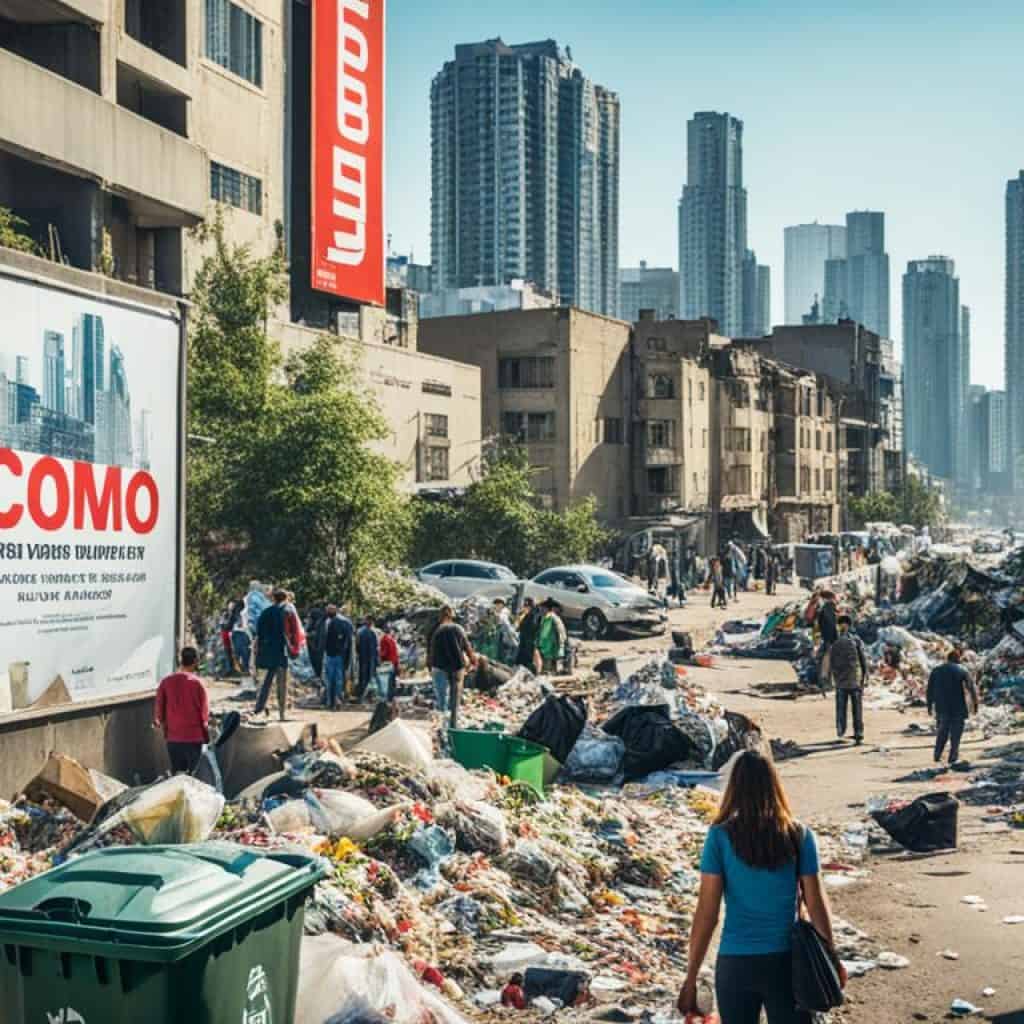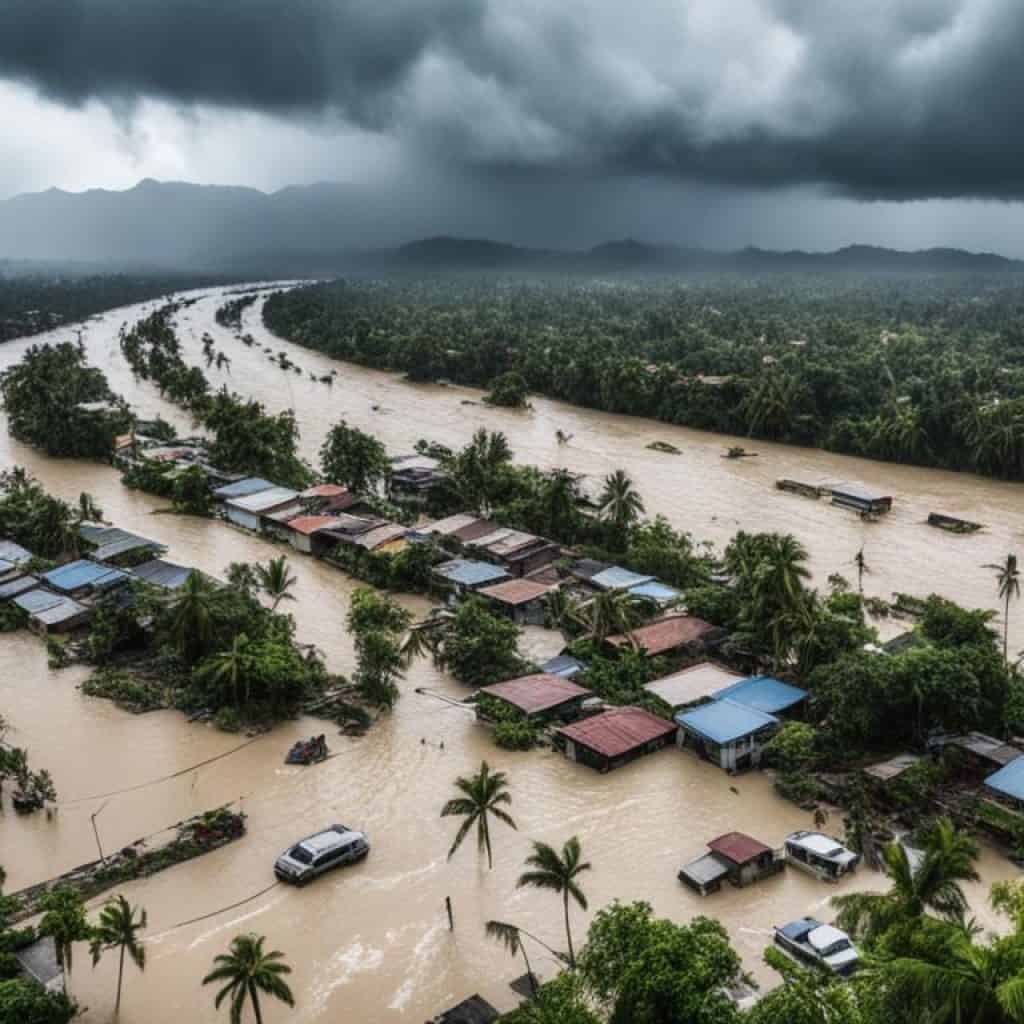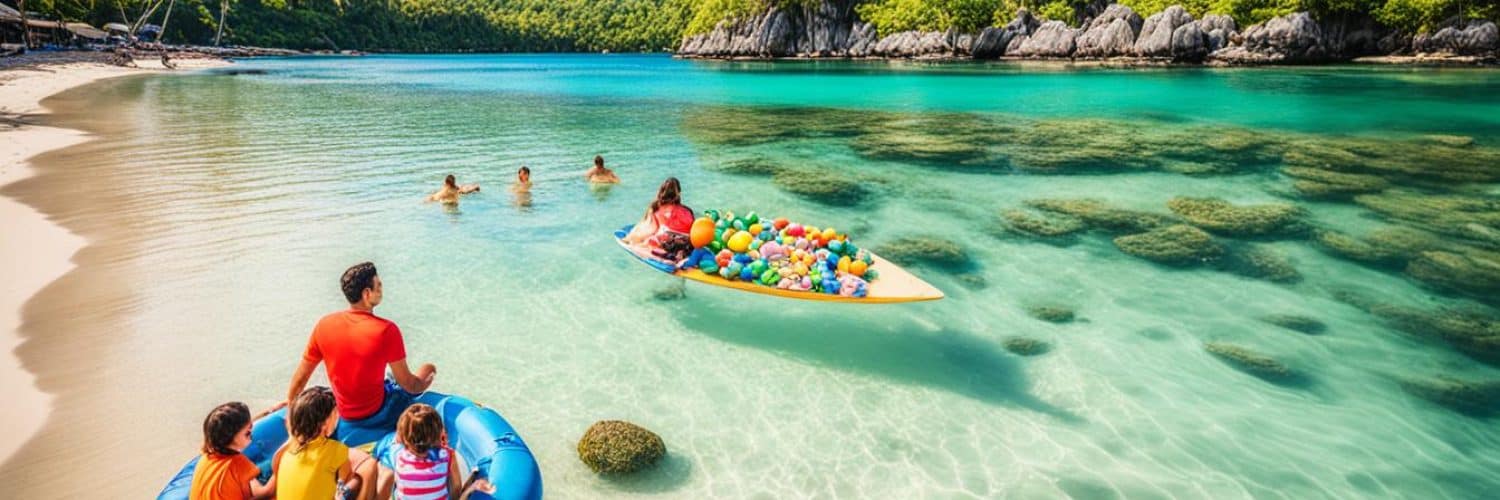When considering a move to a new country, safety is always a top concern. So, is the Philippines safe for expats looking to make it their home? The answer may surprise you.
Despite its reputation, the Philippines is actually considered safer than many people believe. In fact, it ranks 59th out of 142 countries in the safety index, making it a relatively secure place to live. But what factors contribute to this ranking? And what are the key considerations for expats thinking about relocating to the Philippines?
In this article, we will explore the safety aspects of living in the Philippines. We will discuss the pros and cons, transportation safety tips, common scams to be aware of, and offer useful advice for staying safe in this beautiful country. Whether you’re an adventure seeker, an entrepreneur, or someone looking for an affordable and vibrant place to call home, this article will provide you with the information you need to make an informed decision about living in the Philippines.
Key Takeaways:
- The Philippines ranks 59th out of 142 countries in terms of safety.
- The country offers affordable living, beautiful beaches, and a favorable climate.
- Transportation safety and avoiding scams are important considerations for expats.
- Expats should take precautions to ensure personal safety, especially LGBTQ travelers and solo females.
- Familiarize yourself with healthcare options and be prepared for potential medical costs.
Pros of Living in The Philippines
When considering a move to a new country, it’s essential to weigh the benefits and drawbacks. The Philippines offers a range of advantages that make it an attractive destination for expats. From affordable living costs to stunning beaches and a welcoming community, living in the Philippines has plenty of perks.
Affordable Cost of Living
The cost of living in the Philippines is relatively low, making it an affordable place to call home. Whether it’s accommodation, dining out, or everyday expenses, expats can enjoy a comfortable lifestyle without breaking the bank.
Beaches
The Philippines is renowned for its breathtaking beaches, attracting visitors from around the world. As an expat, you can immerse yourself in a laid-back coastal lifestyle and spend your days lounging on pristine white sands or exploring vibrant underwater ecosystems.
Almost Always Sunny
The Philippines enjoys a tropical climate, with warm and sunny weather year-round. Say goodbye to chilly winters and embrace a perpetual summer. This beautiful climate creates the perfect backdrop for outdoor activities and beach adventures.
Affordable Business Talent and A Center for Networking
The Philippines is not only a great place to live but also offers opportunities for entrepreneurs and business professionals. With a highly skilled and affordable workforce, the country is an ideal destination to start or expand your business. Additionally, it boasts a thriving networking culture, with various organizations and events that provide valuable connections and collaborations.
Friendly People
Currency Rate Advantage
With the favorable exchange rate between the US dollar and the Filipino peso, expats can enjoy a financial advantage. Your money can stretch further, allowing you to indulge in the experiences and opportunities that the Philippines has to offer.
New Nature and Wildlife Discovery
The Philippines is teeming with unparalleled biodiversity, making it a haven for nature and wildlife enthusiasts. From rare animal species to unique plant life, you can embark on unforgettable adventures and discover the wonders of the natural world.
| Advantages of Living in The Philippines |
|---|
| Affordable Cost of Living |
| Stunning Beaches |
| Almost Always Sunny |
| Affordable Business Talent |
| A Center for Networking |
| Friendly People |
| Currency Rate Advantage |
| New Nature and Wildlife Discovery |
| Unique Animal and Plant Species |
Living in the Philippines offers a myriad of advantages, from affordable living costs and beautiful beaches to friendly communities and unique nature experiences. Embrace the opportunities that this vibrant country has to offer, surrounded by stunning landscapes and welcoming locals.
Cons of Living in the Philippines
While the Philippines offers many advantages for expats, there are also some challenges to consider when deciding to live in this beautiful country.
Crowded locations, especially in metropolitan areas, can be overwhelming. Expats may encounter issues such as traffic congestion and limited personal space.
“The rainy season in the Philippines brings heavy rainfall and potential flooding, which can disrupt daily life. It is essential to be prepared and take necessary precautions during this time.”
The hot and humid climate, particularly during the summer months, can be challenging for some individuals.
“Wi-Fi connectivity in some areas of the Philippines may not be reliable, which can affect internet access for expats. It is important to plan accordingly and have alternative options.”
There may be additional fees associated with transportation and travel within the country.
“Environmental degradation is a concern in the Philippines, with issues such as illegal wildlife trafficking and deforestation. It is crucial to support sustainable practices and protect the environment.”
Poverty is a significant issue in certain areas of the Philippines, impacting the overall quality of life for residents and expats alike.
Despite these challenges, the Philippines offers a unique and vibrant culture, beautiful landscapes, and welcoming communities that make it an appealing place to live.
Pros and Cons of Living in the Philippines
| Pros | Cons |
|---|---|
| Affordable cost of living | Terrorism concerns |
| Stunning beaches | Crowded locations |
| Almost always sunny | Rainy season and potential flooding |
| Affordable business talent | Hot and humid climate |
| Center for networking | Terrible Wi-Fi connectivity |
| Friendly people | Extra fees |
| Currency rate advantage | Environmental degradation |
| New nature and wildlife discovery | Poverty |

Despite these challenges, the Philippines offers a unique and vibrant culture, beautiful landscapes, and welcoming communities that make it an appealing place to live.
Transportation Safety Tips
When it comes to getting around in the Philippines, expats should prioritize their safety and take necessary precautions. Here are some transportation safety tips to ensure a smooth and secure journey:
- Be cautious when using public transportation, especially in crowded areas where pickpocketing and other crimes may occur. Keep your belongings secure and within sight.
- Use reputable transportation services, such as established taxi companies or ride-hailing apps, to minimize the risk of scams or unsafe vehicles.
- Avoid traveling alone at night, especially in unfamiliar or remote areas. Whenever possible, travel with a companion or use trusted transportation options.
- Plan your travel routes ahead of time, especially in metropolitan areas where traffic congestion is common. This will help you anticipate and avoid potential delays or congested routes.
- Familiarize yourself with local transportation options, such as buses, trains, and jeepneys, and learn about their routes and schedules. This will enable you to navigate the country with confidence.
By following these transportation safety tips, expats can enjoy their journey in the Philippines with peace of mind, knowing that they are taking proactive measures to ensure their safety.
Travel Safely and Confidently
“The journey of a thousand miles begins with a single step.”
Scams in the Philippines
When living in the Philippines, it’s important for expats to be aware of common scams in the country. Being informed about these scams and taking necessary precautions can help ensure financial safety and peace of mind.
Credit Card Fraud: Credit card fraud is a prevalent scam in the Philippines. Expats should be cautious when using their credit cards and avoid sharing sensitive financial information, especially in public places.
Rental Scams: Rental scams can also be a significant concern for expats. It is advisable to thoroughly research and verify rental listings and landlords before making any payments or signing contracts.
By exercising caution and using reputable financial institutions, expats can avoid falling victim to these scams. It is essential to be vigilant when sharing personal and financial information and to report any suspicious activities to the appropriate authorities.

| Common Scams in the Philippines | Precautions |
|---|---|
| Credit Card Fraud | Use credit cards sparingly, monitor transactions regularly, and avoid sharing sensitive information in public. |
| Rental Scams | Research and verify rental listings and landlords before making any payments or signing contracts. |
By staying informed and exercising caution, expats can protect themselves from falling victim to scams in the Philippines, ensuring a safe and secure living experience.
Tips for Staying Safe in the Philippines
When living in or visiting the Philippines, it’s important to prioritize personal safety and take precautions to ensure a secure experience. Here are some tips to help you stay safe:
- Be aware of your surroundings at all times. Keeping a vigilant eye can help you avoid potentially risky situations.
- If you identify as LGBTQ or if you are a solo female traveler, taking additional precautions can enhance your safety. Avoid displaying valuable items that may attract unwanted attention, and exercise caution when interacting with strangers.
- Research and familiarize yourself with local laws and customs. Respecting cultural norms is not only a way to stay safe but also to create positive interactions with the local community.
By following these tips, you can enhance your personal safety and enjoy your time in the Philippines.
Food Safety
When it comes to living in the Philippines, expats should prioritize food safety to avoid foodborne illnesses. By following some simple guidelines, you can ensure that your dining experiences are enjoyable and risk-free.
Eating at Reputable Establishments
Choosing trusted and well-established restaurants or food vendors is key to maintaining food safety.
“I always opt for restaurants with good reviews and high hygiene standards. It gives me peace of mind knowing that the food I’m consuming is prepared in a safe and clean environment.” – Sarah Thompson, expat living in Manila
Proper Hygiene Practices
Practicing good hygiene when handling food is essential. Wash your hands thoroughly with soap and water before and after meal preparation.
“I make sure to wash my hands regularly and use hand sanitizers when dining out. It’s a simple but effective way to minimize the risk of foodborne illnesses.” – Mark Johnson, expat living in Cebu
Avoiding Raw or Undercooked Items
Raw or undercooked food items, such as seafood, eggs, and meat, can carry harmful bacteria that can cause foodborne illnesses. It’s best to avoid consuming these items, especially if you have concerns about their preparation or freshness.
“I always ask for my meat to be cooked well-done when dining out. It’s better to be safe than sorry.” – Anna Ramirez, expat living in Boracay
By being mindful of food safety practices, expats can enjoy a diverse and delicious culinary experience in the Philippines without compromising their health.
Safety Tips for Choosing Street Food
Street food is an integral part of the local food culture in the Philippines. Although it can be tempting to indulge in street food delights, it’s crucial to exercise caution and follow these safety tips:
- Choose stalls that have a steady stream of customers, indicating popularity and freshness.
- Observe food handling practices, ensuring that vendors use clean utensils and surfaces.
- Opt for cooked or grilled food that is served piping hot to reduce the risk of contamination.
- Be mindful of ingredients, especially if you have allergies or dietary restrictions.
With these safety tips in mind, you can savor the local flavors and street food delicacies while minimizing the risk of foodborne illnesses.
| Food Safety Measures | Benefits |
|---|---|
| Eating at reputable establishments | – Reduced risk of consuming contaminated food |
| Practicing proper hygiene | – Minimized transmission of bacteria |
| Avoiding raw or undercooked items | – Lower chances of foodborne illnesses |
| Safety tips for choosing street food | – Enjoying local cuisine while prioritizing food safety |
Travel Safety in the Philippines
When traveling to the Philippines, it’s essential to prioritize your safety and be aware of certain areas that may require caution. In regions with a history of terrorist activities, it is advisable to avoid these places or approach them with careful consideration. Staying informed about travel advisories and following the instructions of local authorities can significantly contribute to your safety.
The Philippines is a beautiful country with diverse landscapes and vibrant culture, but like any destination, it’s important to be proactive in ensuring a safe and enjoyable trip. By taking necessary precautions and staying informed, you can focus on exploring the incredible sights and experiences that the Philippines has to offer.
“Safety should always be a top priority when traveling. Researching the areas you plan to visit and staying informed about travel advisories can help you make educated decisions.”
Read on to discover some of the places to avoid in the Philippines and how to enhance your travel safety.
Places to Avoid in the Philippines
- Mindanao: Due to ongoing conflicts and the presence of terrorist groups, certain areas in Mindanao should be avoided.
- Marawi City: This city experienced a siege in 2017 and is currently in a state of rehabilitation. It is advisable to avoid travel to Marawi City until the situation stabilizes.
- Other conflict-affected areas: Stay updated on travel advisories and avoid or carefully evaluate travel to regions with reported conflicts or security concerns.
Remember, it is essential to stay informed about the current security situation and be flexible in altering your travel plans if necessary to prioritize your safety.
Healthcare and Safety
Ensuring accessible healthcare and being prepared for potential medical costs are important considerations for expats living in the Philippines. The country offers both public and private healthcare options for residents to access necessary medical services.
Public healthcare in the Philippines is provided through government-owned institutions, including hospitals and clinics. While these facilities may offer more affordable options, it’s important to note that they may have limited resources and longer waiting times for certain treatments.
On the other hand, private healthcare in the Philippines provides a wider range of services, shorter waiting times, and access to specialized medical practitioners. Private hospitals and clinics typically offer higher quality facilities and a more comprehensive range of treatments but can come at a higher cost.
Regardless of the healthcare system you choose, having appropriate health insurance coverage is essential. Expats should consider obtaining private health insurance to ensure they have comprehensive coverage that suits their needs. This can help alleviate some of the financial burdens associated with medical expenses.
Healthcare Services Comparison
| Public Healthcare | Private Healthcare |
|---|---|
| Government-owned institutions | Private hospitals and clinics |
| More affordable | Higher cost |
| Longer waiting times | Shorter waiting times |
| Limited resources | Comprehensive range of treatments |
Natural Disasters in the Philippines
The Philippines is known for its natural beauty, but it is also susceptible to a range of natural disasters, including typhoons and earthquakes. These events can have a significant impact on the safety and well-being of both locals and expats living in the country. It is essential for expats to be prepared and informed about how to stay safe during times of natural disasters.
Typhoons
Typhoons are a frequent occurrence in the Philippines, particularly during the rainy season, which typically lasts from June to November. These powerful tropical storms can bring heavy rain, strong winds, and even flooding. Expats should stay updated on weather forecasts and heed warnings from local authorities. It is advisable to have an emergency kit stocked with essential supplies such as food, water, medications, and flashlights in case of power outages.
Earthquakes
The Philippines is located on the Pacific Ring of Fire, making it prone to earthquakes. While not as predictable as typhoons, earthquakes can occur at any time, and it is crucial to know what to do when one strikes. Familiarize yourself with evacuation routes and emergency protocols. During an earthquake, seek shelter under sturdy furniture or in doorways and stay away from windows and heavy objects that may fall.
“Being prepared and having a plan can make all the difference during natural disasters.” – Local Disaster Risk Reduction Management Office
By understanding the risks and taking necessary precautions, expats can minimize the potential impact of natural disasters in the Philippines. It is recommended to stay informed about local emergency services, follow safety guidelines, and have a well-thought-out emergency plan in place.

English Language in the Philippines
The Philippines is known for its English proficiency, making it an ideal destination for expats who may have concerns about language barriers. The country has a long history of English language education and is one of the largest English-speaking nations in the world. The widespread use of English in various sectors, such as education, government, business, and media, makes it easier for expats to navigate daily life and communicate with locals.
With English as one of the official languages of the Philippines, expats can expect to find English signage, menus, and communication in most urban areas. This linguistic advantage significantly reduces the language barrier for expats and allows for a smoother transition into the local culture.
“English proficiency among Filipinos is recognized globally, with consistently high scores in English proficiency tests. This makes it easier for expats to integrate into the community and engage in various activities without worrying about language limitations.”
Moreover, the prevalence of English-speaking locals facilitates interactions and fosters a welcoming environment for expats. Whether it’s seeking directions, ordering food, or engaging in social activities, expats can confidently communicate in English with a majority of Filipinos.
However, it’s worth noting that while English is widely understood, there may still be instances where expats encounter language challenges, particularly in rural areas or with older generations who may be more comfortable speaking Filipino languages. In such cases, it can be helpful to learn some basic Filipino phrases or utilize translation tools to bridge any communication gaps.
| Advantages of English Language in the Philippines | Disadvantages of English Language in the Philippines |
|---|---|
|
|
In conclusion, the widespread use of English in the Philippines alleviates the language barrier for expats, allowing for easy communication and integration into the local community. While there may be occasional challenges, the prevalence of English proficiency among Filipinos provides a significant advantage for expats seeking a smooth transition and enriching experience in the Philippines.
Conclusion
Is Philippines Safe To Live? The safety in the Philippines may vary depending on various factors such as location, personal precautions, and awareness of the surroundings. While there are certain concerns such as terrorism and poverty, the Philippines offers affordable living, beautiful landscapes, and a friendly community.
Expats who choose to live in the Philippines should exercise caution, follow safety guidelines, and make informed decisions to ensure a safe and enjoyable experience. It is important to be vigilant, especially in crowded locations, and to take necessary precautions when using public transportation. Staying informed about travel advisories and following local authorities’ instructions is crucial.
Despite the challenges, the Philippines provides expats with numerous advantages, including a low cost of living, stunning beaches, and a welcoming environment. By staying educated on safety measures and being mindful of potential risks, expats can thrive in the Philippines and enjoy the unique opportunities it offers.
FAQ
Is the Philippines safe to live?
The safety in the Philippines may vary depending on various factors such as location, personal precautions, and awareness of the surroundings. While there are certain concerns such as terrorism and poverty, the Philippines offers affordable living, beautiful landscapes, and a friendly community. It is essential for expats to exercise caution, follow safety guidelines, and make informed decisions to ensure a safe and enjoyable experience living in the Philippines.
What are the pros of living in the Philippines?
The pros of living in the Philippines include affordable cost of living, beautiful beaches, almost always sunny weather, affordable business talent, a center for networking, friendly people, a currency rate advantage, new nature and wildlife discovery with unique animal and plant species.
What are the cons of living in the Philippines?
The cons of living in the Philippines include concerns about terrorism, crowded locations, the rainy season, hot and humid weather, unreliable Wi-Fi, extra fees associated with transportation, environmental degradation, and poverty in certain areas.
What are the transportation safety tips in the Philippines?
Transportation safety tips in the Philippines include using reputable transportation services, avoiding traveling alone at night, being cautious when using public transportation in crowded areas, planning travel routes to avoid traffic congestion, and familiarizing yourself with local transportation options and routes.
What are the common scams in the Philippines?
Common scams in the Philippines include credit card fraud and rental scams. It is important to exercise caution when sharing personal and financial information, use reputable financial institutions, and be vigilant with your transactions.
What are some tips for staying safe in the Philippines?
Tips for staying safe in the Philippines include being aware of your surroundings, avoiding risky situations, following local laws and customs, practicing personal safety precautions, and taking additional precautions for LGBTQ travelers and solo females.
What are the food safety practices in the Philippines?
Food safety practices in the Philippines include eating at reputable establishments, ensuring proper hygiene when handling food, and avoiding consuming raw or undercooked items to avoid foodborne illnesses.
What are the places to avoid for travel safety in the Philippines?
Certain areas in the Philippines, particularly regions with a history of terrorist activities, should be avoided or approached with caution. It is important to stay informed about travel advisories and follow local authorities’ instructions for safety.
How is healthcare and safety in the Philippines?
Healthcare services in the Philippines are accessible through public or private healthcare systems. Public healthcare is available through government-owned institutions, and private healthcare options are also available. It is important to have appropriate health insurance coverage and be prepared for potential medical costs.
What are the natural disasters in the Philippines?
The Philippines is susceptible to natural disasters, including typhoons and earthquakes. Expats should be prepared and follow safety protocols during times of natural disasters.
How prevalent is the English language in the Philippines?
English is widely spoken in the Philippines, making it easier for expats to navigate daily life and communicate with locals.
Is the Philippines safe to live?
The safety in the Philippines may vary depending on various factors such as location, personal precautions, and awareness of the surroundings. While there are certain concerns such as terrorism and poverty, the Philippines offers affordable living, beautiful landscapes, and a friendly community. It is essential for expats to exercise caution, follow safety guidelines, and make informed decisions to ensure a safe and enjoyable experience living in the Philippines.


















Add comment